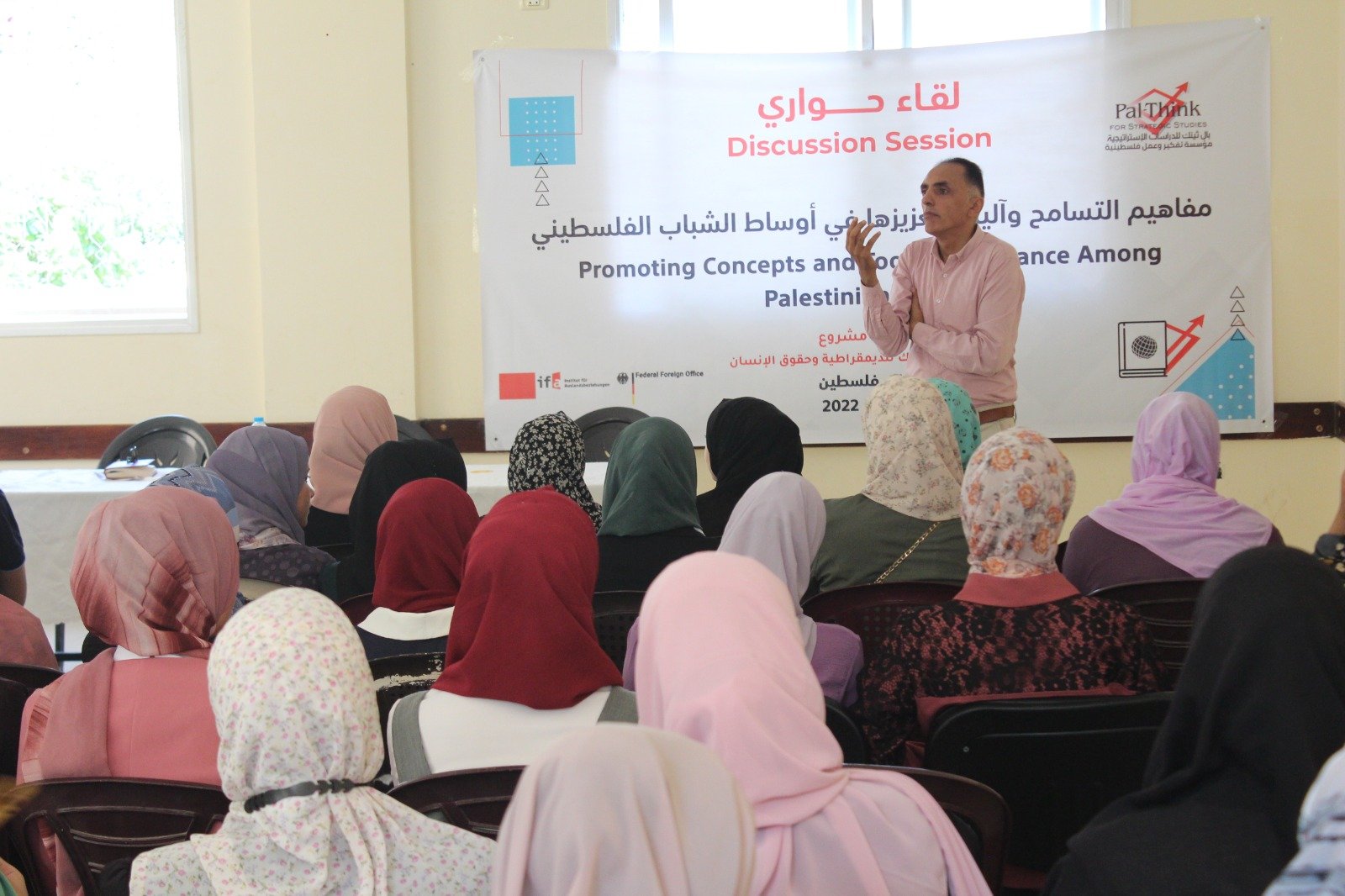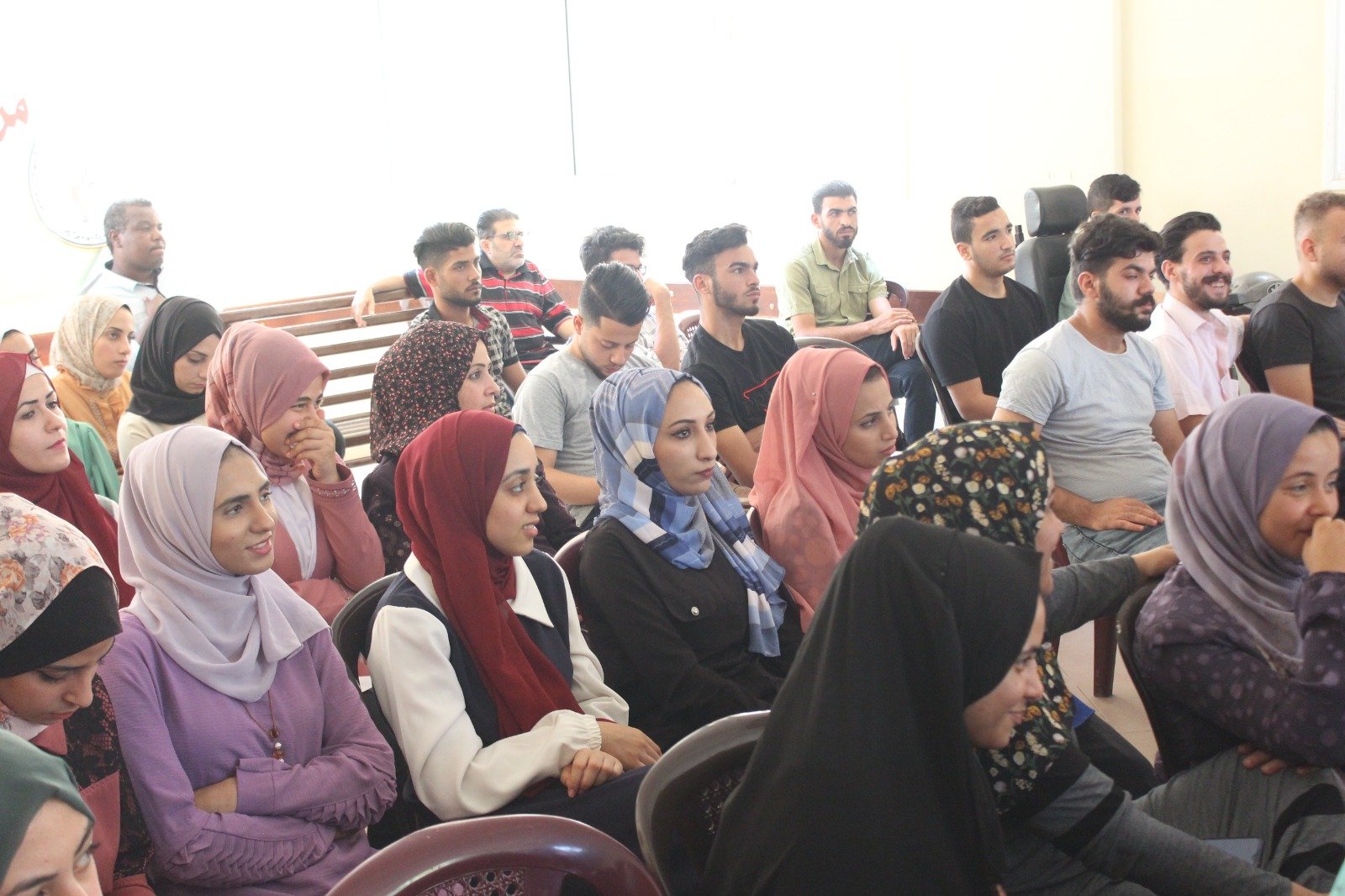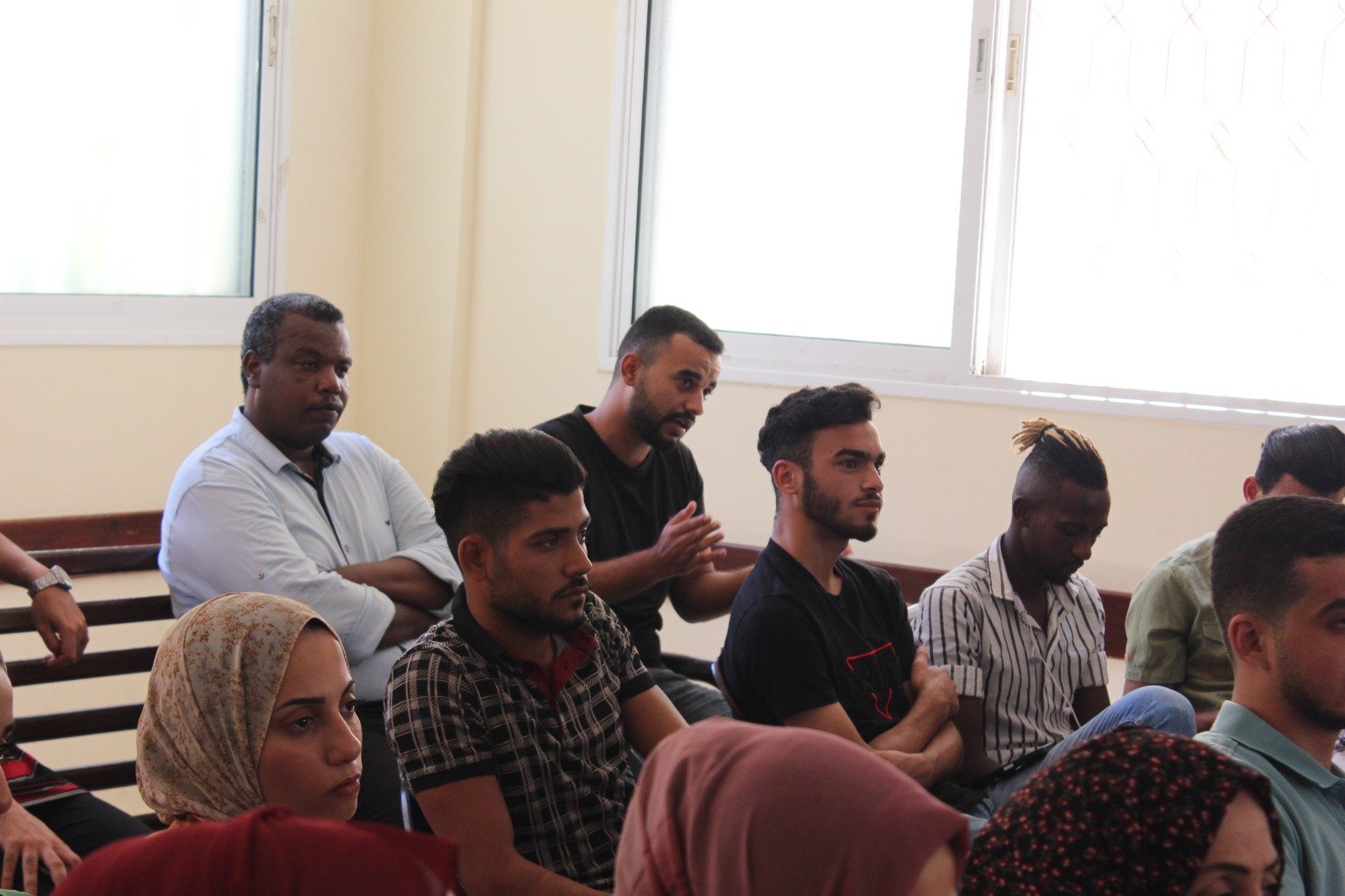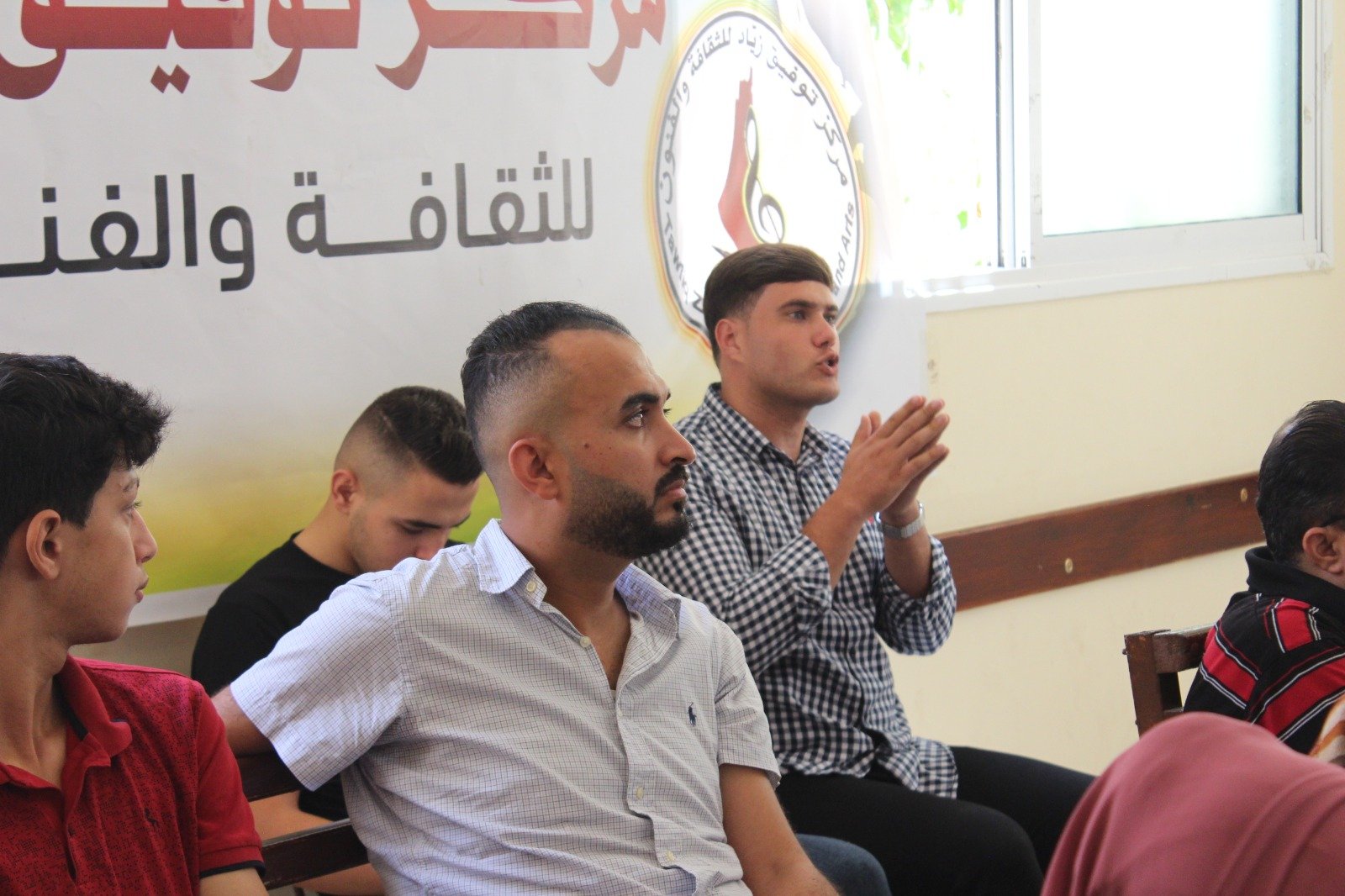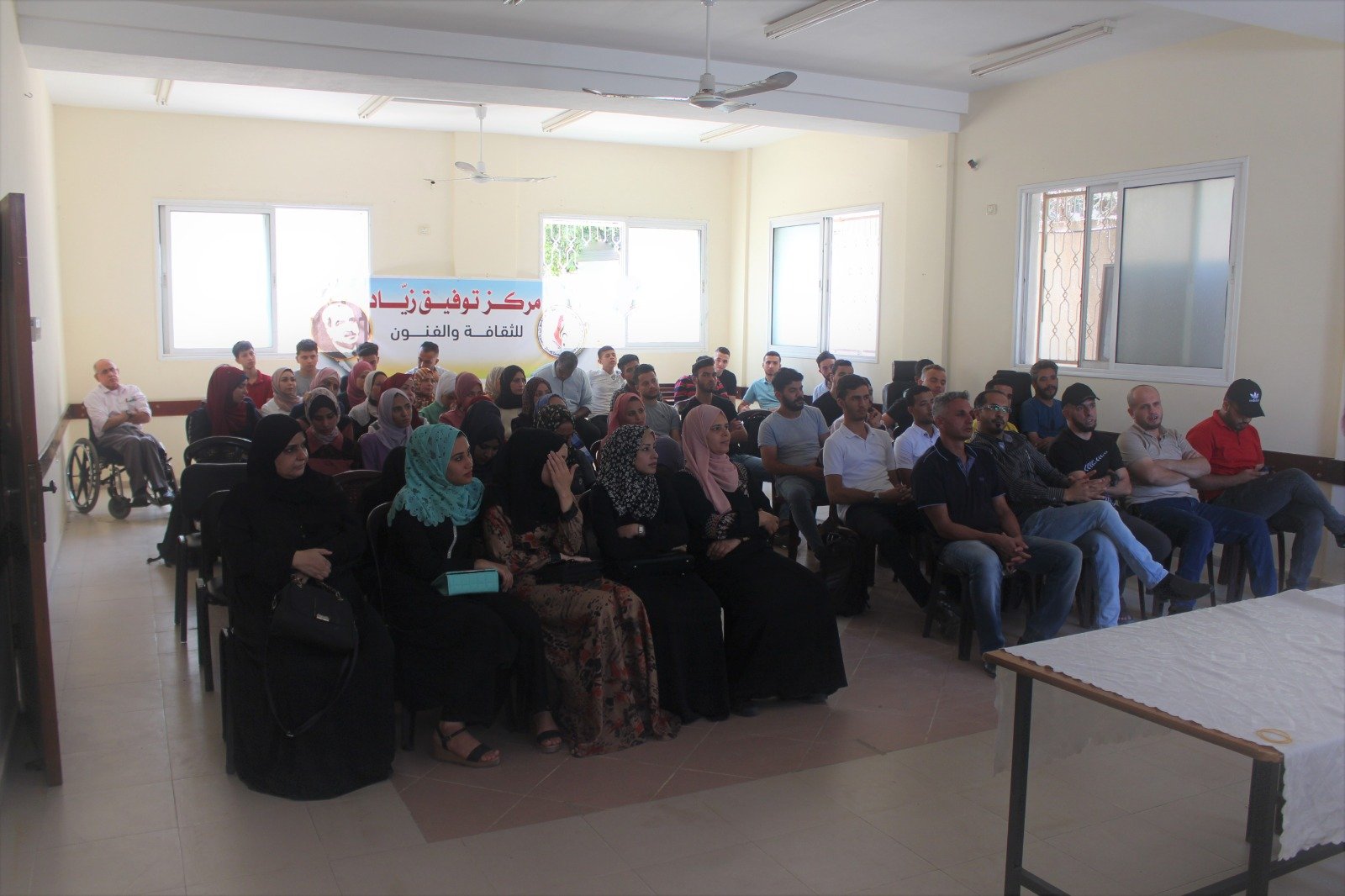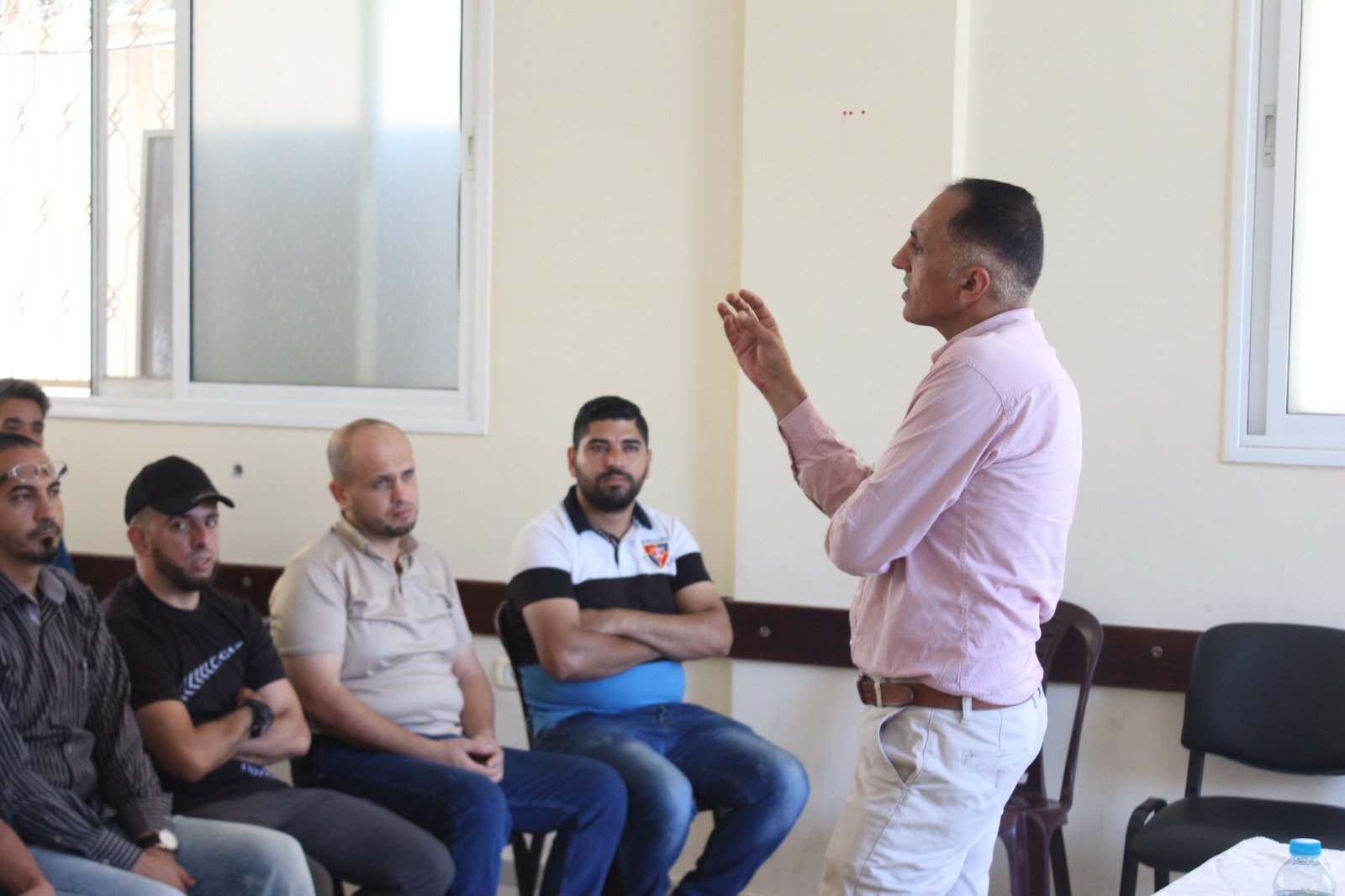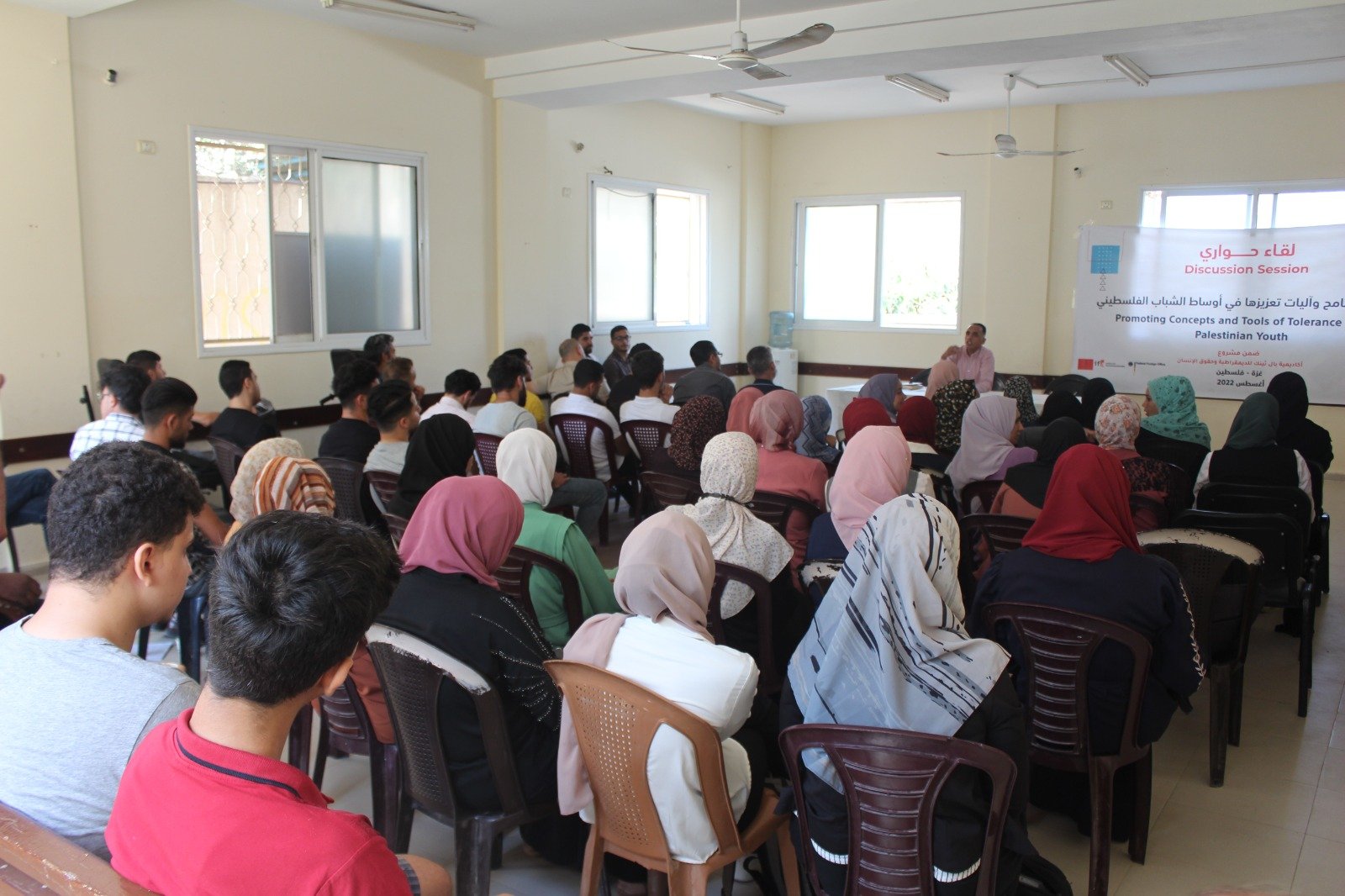
Pal-Think for Strategic Studies has held a session entitled “Tolerance and How to Promote it Among Youth”, attended by a number of graduates and university students from the northern Gaza Strip, in cooperation with Tawfiq Ziyad Center for Culture and Arts, within the activities and events of the “Pal-Think Academy for Democracy and Rights” project implemented by Pal-Think in partnership with the German Institute for Foreign Cultural Relations (ifa).
Bilal Al-Najjar, a lawyer at Pal-Think, opened the session by welcoming the attendees and stressing the role of Pal-Think in promoting discussion and dialogue on the concepts of tolerance in Palestinian society, which is a departure point for reconciliation, noting that youth are the key to change, development, and progress for any society.
Talal Abu Rukba, a political researcher who holds a doctorate degree in political science, moderated the session and reviewed the concept of tolerance and acceptance of the other and the need for Palestinian society to implement these concepts.
“The need to mainstream and consolidate the culture of tolerance and acceptance of the other within Palestinian society has become more necessary than ever, especially in light of the current circumstances the Palestinian society is going through,” Abu Rukba said.
“Tolerance and acceptance of the other should become a societal attitude. Tolerance does not mean accepting injustice and persecution and abandoning one’s beliefs and ideas, but respecting and accepting cultural diversity, human expressions, and various human qualities,” he added.
He pointed out that the United Nations Educational, Scientific and Cultural Organization (UNESCO) adopted, at its General Conference at its 28th session, on November 16, 1995, the Declaration of Principles on Tolerance, and this date of each year has become the International Day for Tolerance.
Abu Rukba referred to a number of international treaties and covenants that emphasized the concept of tolerance, such as the International Covenant on Civil and Political Rights, the International Convention on the Elimination of All Forms of Racial Discrimination, and the Declaration on the Elimination of All Forms of Intolerance.
The attendees discussed the fact that the Palestinian society is one of the societies that has suffered and still is suffering from the absence of tolerance and acceptance of the other, which led to the Palestinian-Palestinian division, which in turn affected all aspects of life.
They also recommended that Palestinian universities should promote tolerance through awareness-raising publications, dedicating a course discussing this issue, and inculcating these values in children in schools and kindergartens.
Likewise, the attendees stressed the need for the Palestinian legislator to pass laws criminalizing any practice that threatens tolerance, as it is a pillar of progress and development.
The attendees unanimously agreed on the importance of taking all practical measures to end the Palestinian political division, especially since citizens are the ones who are paying the price, and this can only be achieved through the consolidation of tolerance and acceptance of the other.


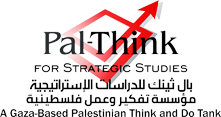
 Home
Home Literature
Literature Studies
Studies Reports
Reports Book
Book International Conventions
International Conventions Links
Links Academy News
Academy News Opportunities
Opportunities Networking
Networking Your opinion
Your opinion